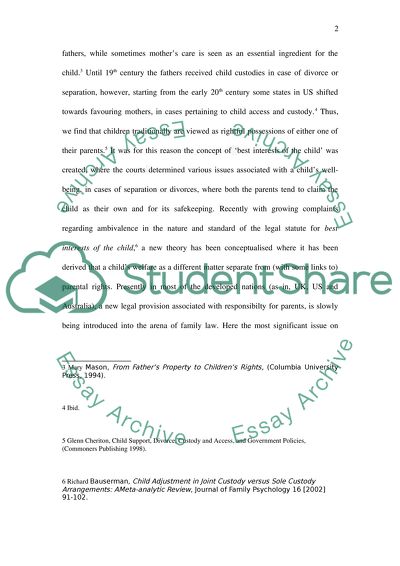Cite this document
(“Family Law: Parents and children Essay Example | Topics and Well Written Essays - 2750 words”, n.d.)
Retrieved from https://studentshare.org/law/1395570-family-law-parents-and-children
Retrieved from https://studentshare.org/law/1395570-family-law-parents-and-children
(Family Law: Parents and Children Essay Example | Topics and Well Written Essays - 2750 Words)
https://studentshare.org/law/1395570-family-law-parents-and-children.
https://studentshare.org/law/1395570-family-law-parents-and-children.
“Family Law: Parents and Children Essay Example | Topics and Well Written Essays - 2750 Words”, n.d. https://studentshare.org/law/1395570-family-law-parents-and-children.


